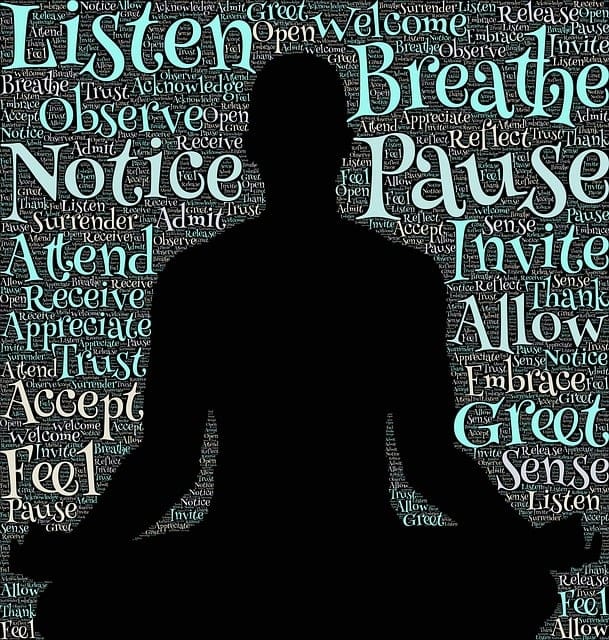Master Your Mental Health: Effective Coping Strategies
Introduction
Living with Obsessive-Compulsive Disorder (OCD) can be overwhelming and stressful. The constant cycle of intrusive thoughts and compulsive behaviors can take a toll on one’s mental and emotional well-being. However, there are various techniques that can help individuals with OCD manage their stress levels and find a sense of calm amidst the chaos. In this article, we will explore some effective OCD stress relief techniques that can make a positive difference in your daily life.
Mindfulness Meditation
Mindfulness meditation is a powerful technique that can help individuals with OCD reduce stress and anxiety. By focusing on the present moment and observing their thoughts without judgment, individuals can gain a better understanding of their OCD patterns and learn to detach from them. Regular practice of mindfulness meditation can improve self-awareness, increase emotional resilience, and promote a sense of inner peace.
How To Practice Mindfulness Meditation:
- Find a quiet and comfortable space where you can sit or lie down.
- Close your eyes and take a few deep breaths to relax your body and mind.
- Bring your attention to your breath, noticing the sensation of each inhalation and exhalation.
- If your mind starts to wander, gently redirect your focus back to your breath.
- Observe any thoughts or feelings that arise without judgment, allowing them to come and go.
- Continue this practice for a few minutes each day, gradually increasing the duration over time.
Cognitive Behavioral Therapy (CBT)
Cognitive Behavioral Therapy (CBT) is a widely recognized and effective treatment for OCD. This therapy focuses on identifying and challenging negative thought patterns and behaviors associated with OCD. By working with a trained therapist, individuals can learn coping strategies, develop healthier habits, and reframe their perception of OCD-related stressors. CBT provides practical tools and techniques that empower individuals to take control of their thoughts and behaviors
Key Elements Of Cognitive Behavioral Therapy:
- Identifying and challenging irrational thoughts and beliefs related to OCD.
- Gradual exposure to OCD triggers to reduce anxiety and desensitize the mind.
- Implementing behavioral experiments to test the validity of OCD-related thoughts.
- Developing healthy coping mechanisms and alternative responses to intrusive thoughts.
- Regular sessions with a CBT therapist to monitor progress and provide guidance.
Physical Exercise
Engaging in regular physical exercise is not only beneficial for physical health but also plays a significant role in reducing stress and anxiety associated with OCD. Exercise releases endorphins, which are natural mood-boosting chemicals in the brain. It can also serve as a healthy distraction from obsessive thoughts and provide an outlet for pent-up energy. Whether it’s going for a run, practicing yoga, or participating in team sports, finding an exercise routine that suits your preferences can contribute to your overall well-being.
Tips For Incorporating Exercise Into Your Routine:
- Choose activities that you enjoy and look forward to.
- Start with small, manageable goals and gradually increase intensity and duration.
- Find an exercise buddy or join a group class for added motivation and support.
- Experiment with different types of exercise to keep it interesting and prevent boredom.
- Listen to your body and take rest days when needed to avoid burnout.

Journaling
Journaling is a therapeutic practice that can help individuals with OCD manage stress and gain clarity. By writing down their thoughts, emotions, and experiences, individuals can externalize their internal struggles and gain a fresh perspective. Journaling can also serve as a tool for tracking triggers, identifying patterns, and monitoring progress. It provides a safe space for self-reflection and can be a valuable outlet for expressing emotions that may feel overwhelming.
Tips For Effective Journaling:
- Set aside dedicated time each day for journaling.
- Write freely without judgment or self-censorship.
- Focus on your emotions and thoughts related to your OCD experiences.
- Experiment with different journaling techniques, such as gratitude journaling or stream-of-consciousness writing.
- Review your journal periodically to identify patterns and track your progress.
Seeking Support
Living with OCD can be challenging, and it is essential to remember that you are not alone. Seeking support from trusted friends, family members, or support groups can provide a sense of understanding, validation, and encouragement. Connecting with others who have similar experiences can offer valuable insights and coping strategies. Additionally, consider reaching out to mental health professionals who specialize in OCD treatment. They can provide expert guidance and support tailored to your specific needs.
Conclusion
Managing stress and finding relief from OCD is an ongoing journey that requires patience, perseverance, and a combination of different techniques. By incorporating mindfulness meditation, cognitive behavioral therapy, physical exercise, journaling, and seeking support, individuals with OCD can develop effective coping mechanisms and regain control over their lives. Remember, each person’s experience with OCD is unique, so it may take time to find the right combination of techniques that work best for you. Be kind to yourself and celebrate every small step towards finding calm amidst the chaos.







